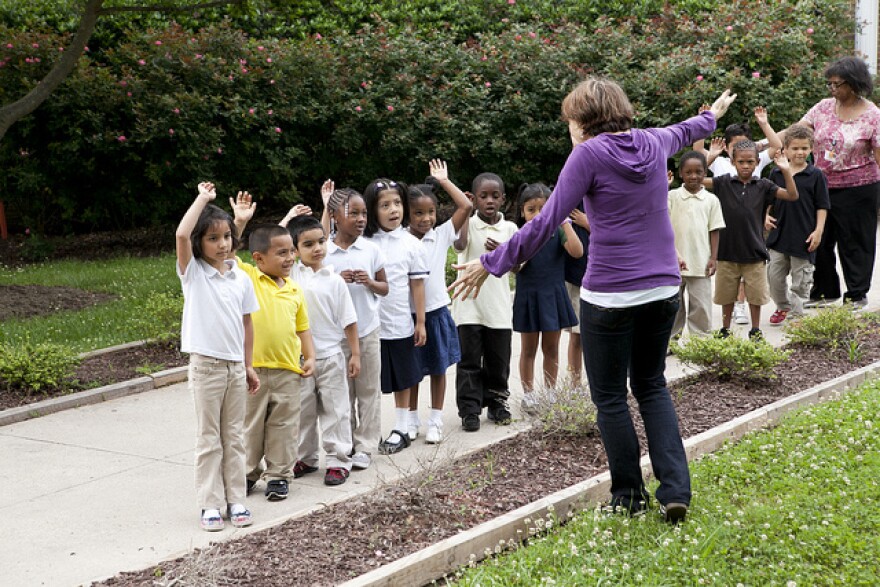During the last several years, you may have heard the phrase "School-to-Prison Pipeline" pop up in conversation. It will often be used in discussions regarding the "Zero Tolerance Policy" and armed resource officers in schools. What the school-to-prison pipeline refers to is a number of policies and practices in place that push children from schools into the criminal justice system.
On the State of Things, we present a roundtable with local experts and advocates for education justice to discuss how the pipeline works and alternatives to the pipeline. Frank Stasio talks with , the executive director of ; Tryone Tapp, a participant and youth ambassador to Polished Souls; , an attorney for ; Rukiya Dillahunt, a retired educator from Wake County schools and a student and parent advocate for Education Justice; and , executive director of .This segment is part of the


